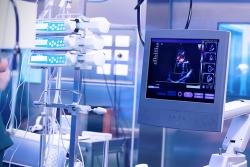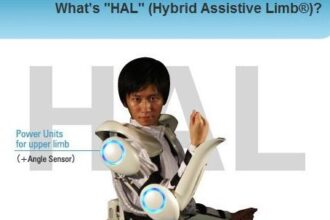From Hollywood movies to science fiction novels, we’ve seen many creative interpretations of medical devices from the future. Take for example the cancer-curing full-body scanner featured in Elysium or the burn-healing serum used in The Hunger Games. While these devices are conceived by Hollywood, it won’t be long before we start to see technological advances with similar capabilities. Check out four medical devices and trends already being implemented in medical centers all around the world.
Medical Imaging Devices
While standard imaging devices such as X-ray, CT scanners, PET-CT, and MR have been standard practice for decades, the Carestream CS 9300 CBCT technology has displayed additional benefits that can advantageously supplement current practices. The Carestream device allows users to expand across the entire imaging spectrum rather than on a specific region. This allows doctors to gather more data, which will in turn fuel the importance for healthcare data analytics.
Integrating Medical Devices Into Furniture
Integrated devices will allow patients to monitor themselves regardless of their location, giving them the freedom of movement. Medical devices integrated into household furniture will also aid the monitoring of chronic diseases, and allow doctors to collect data that can help predict long term trends in an aging population. Integrating medical devices into hospital or dental furniture can greatly contribute to a deeper care of the patient’s long term health and undoubtedly reduce the number of wires and connected devices.
Data-Driven Devices and Commercialization
Medical devices have increasingly become data-driven and analytical. For example, Scanadu can read your vital signs with 95 percent accuracy, including heart rate, blood pressure, and temperature. In general, devices are becoming more data-driven and user-friendly in the commercial sphere. Glucose monitors and iPhone apps dedicated to tracking health and fitness are just two different examples of the growing importance of data. Companies such as LifeGuard Games are creating games that teach children about illnesses and best care practices. The intersection of data and commercialization means a greater awareness of health-related issues, and will have a significant impact on future medical machines.
Advanced Healthcare Record Systems
The importance of keeping healthcare records is tremendous, but not many people realize the overwhelming use of disorganized paper files or out-of-date electronic devices. Kool Smiles, a company that provides high quality dental services to underserved or overlooked communities, is ahead of the curve. With award-winning electronic health records machines in place at every Kool Smiles-affiliated clinic, the company emphasizes organization and patient satisfaction, which has resulted in 97 percent of their patients planning to return and refer friends and family. Their mission to deliver high-quality care to all patients is deeply rooted in their mission statement, and with the help of technology, they are able to do so. For more information on dental health practices, check out the Kool Smiles Twitter page. Healthcare is well on its way to becoming as advanced as we see in the movies. The commercialization of medical devices, along with big data and organization, is a paramount trend that is leading the advancement of medical devices, resulting in greater healthcare for all. (medical devices / shutterstock)








